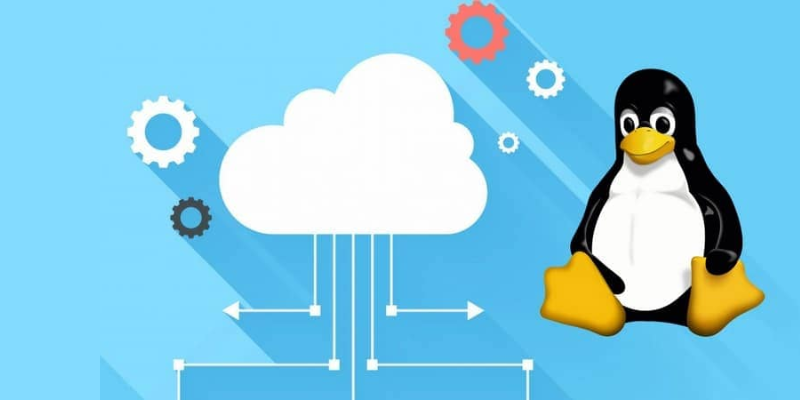Unix and Linux have become integral to cloud computing, powering some of the largest data centers and cloud platforms globally. Their stability, scalability, and adaptability make them ideal for managing virtualized environments and deploying cloud-based applications. This blog explores how Unix and Linux enhance cloud computing capabilities and why acquiring skills in these operating systems is essential for tech industry professionals.
The Role of Unix and Linux in Cloud Computing
Unix and Linux operating systems are renowned for their robust architecture, making them suitable for handling the demands of cloud computing. These systems support multi-user operations, offer exceptional performance, and can be customized to fit specific use cases. For professionals looking to master these systems, enrolling in UNIX Training in Chennai provides hands-on experience and a deeper understanding of their functionalities.
One of the significant advantages of Unix and Linux in cloud computing is their ability to scale resources efficiently. Cloud platforms rely heavily on virtualization, and Linux, in particular, supports a wide range of hypervisors like KVM and Xen. This compatibility ensures optimal performance for virtual machines. Furthermore, Linux containers (via Docker) enable seamless deployment and scaling of applications.
Security and Reliability
Security is a top priority in cloud computing, and Unix and Linux are widely recognized for their robust security frameworks. Their permission-based systems, combined with additional security tools like SELinux (Security-Enhanced Linux), make them the preferred choice for cloud providers. These security measures minimize vulnerabilities, ensuring data protection in multi-tenant environments. Professionals seeking to deepen their expertise in this area can benefit from Linux Course in Chennai, which covers the implementation of security best practices.
Linux dominates the cloud market, with most cloud platforms like AWS, Google Cloud, and Microsoft Azure offering Linux-based instances. The flexibility of Unix and Linux makes them compatible with various cloud services, enabling developers to run scalable applications efficiently.
Automation and DevOps
Unix and Linux are central to automation and DevOps workflows in cloud computing. Tools like Ansible, Puppet, and Jenkins run seamlessly on these operating systems, streamlining deployment, configuration, and continuous integration/continuous deployment (CI/CD) processes. Automation reduces human errors and accelerates delivery times, critical factors for cloud-based environments. Understanding these concepts through UNIX Courses Online can help professionals grasp how to optimize cloud infrastructures effectively.
The open-source nature of Linux makes it a cost-effective solution for cloud computing. Its widespread community support ensures continuous development, eliminating licensing fees while offering high reliability. Organizations leveraging Linux-based systems in the cloud benefit from reduced operational costs without compromising performance.
High Availability and Disaster Recovery
Unix and Linux systems are engineered for high availability and disaster recovery, essential for cloud computing environments. Their support for clustering technologies ensures minimal downtime, while tools like Rsync and Cron automate backups and synchronization. These features are critical for maintaining service continuity in the cloud. By enrolling in Linux Certification Course, learners can explore how these operating systems interact with cloud platforms, enhancing their ability to manage complex cloud infrastructures.
Unix and Linux are at the core of cloud computing, offering unparalleled stability, security, and scalability. Their compatibility with modern tools and platforms makes them indispensable for managing cloud infrastructures.
Advanced Performance Capabilities
Unix and Linux stand out for handling extensive workloads without compromising performance. This is crucial for cloud environments, where multiple virtual machines and containers often run simultaneously. For instance, Linux’s kernel-based virtualization (KVM) offers high efficiency, while tools like Cgroups and Namespace enhance resource allocation and isolation. Professionals aiming to specialize in automation can complement their Linux expertise with Oracle Training in Chennai, which often includes database automation strategies.
Linux’s modularity allows developers to create lightweight, purpose-built systems tailored to specific cloud applications. This customization ensures that only necessary components are included, reducing overhead and improving speed.
Role in Hybrid and Multi-Cloud Strategies
Unix and Linux play a pivotal role in the adoption of hybrid and multi-cloud strategies, which are becoming increasingly popular among businesses. These strategies allow organizations to combine the best features of private and public clouds, offering flexibility and cost-efficiency. Furthermore, tools like Kubernetes, which rely on Linux as their foundation, simplify the management of hybrid and multi-cloud environments. Professionals can expand their skills by pursuing Oracle Online Training, which includes insights into using Linux alongside Oracle databases for cloud deployments
Open-Source Ecosystem
The vibrant open-source community surrounding Unix and Linux is another reason for their dominance in cloud computing. This community drives continuous innovation, offering a wealth of tools, libraries, and frameworks that extend the functionality of these operating systems. For example, Linux distributions like Ubuntu and CentOS are updated regularly, ensuring compatibility with the latest cloud technologies.
Moreover, the collaborative nature of the community ensures rapid resolution of issues and the availability of extensive documentation. Professionals interested in exploring the full potential of this ecosystem should consider Unix and Linux Certification courses. To master such advanced functionalities, enrolling in Oracle Course in Coimbatore can provide additional insights into database-centric cloud operations.
Unix and Linux remain indispensable in cloud computing, offering unmatched stability, scalability, and security. Whether you’re managing resources, enhancing security, or adopting hybrid cloud strategies, these operating systems provide the tools and frameworks necessary for success. By mastering these powerful systems, professionals can unlock new opportunities and drive innovation in the dynamic world of cloud computing. You can also go through How to Export MERN Stack data into Excel.

